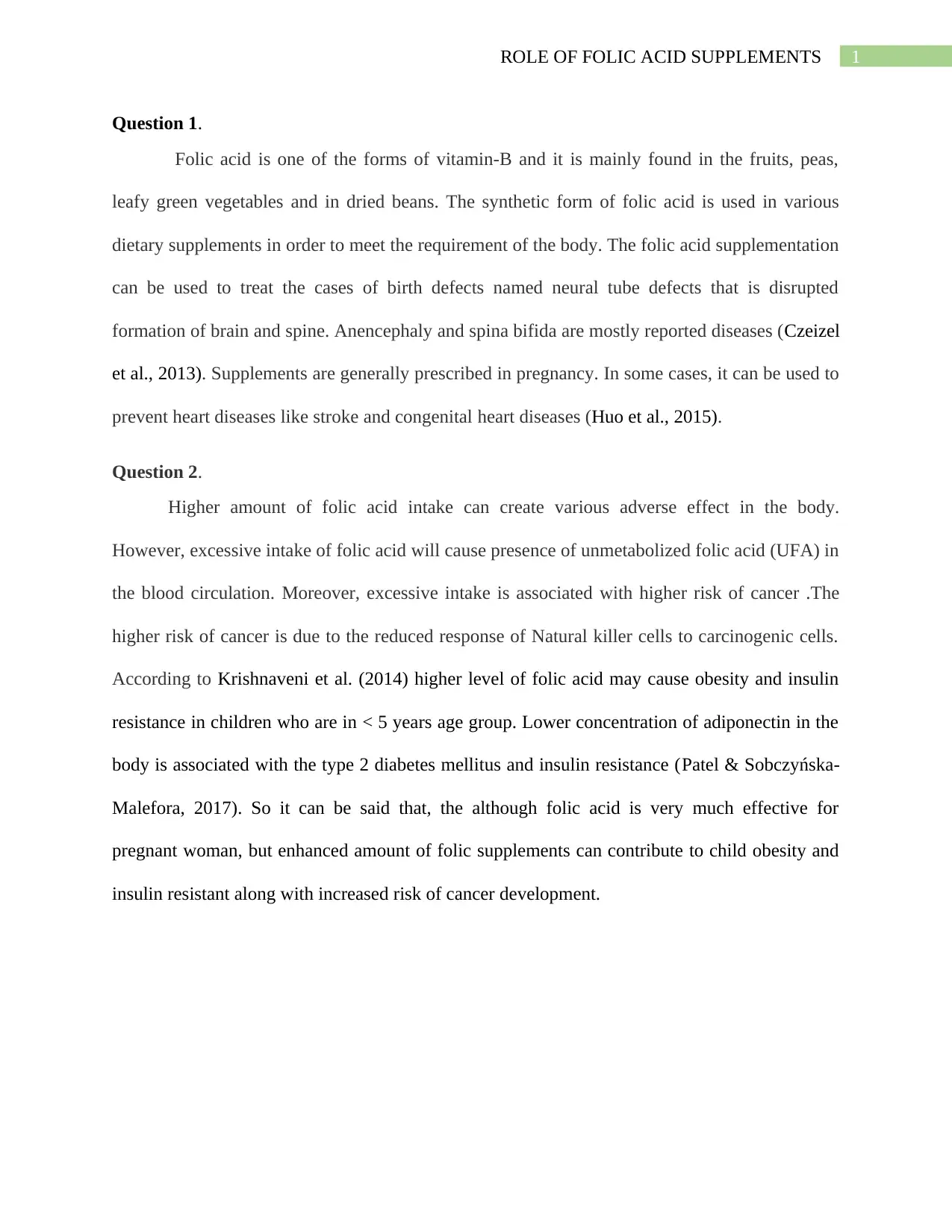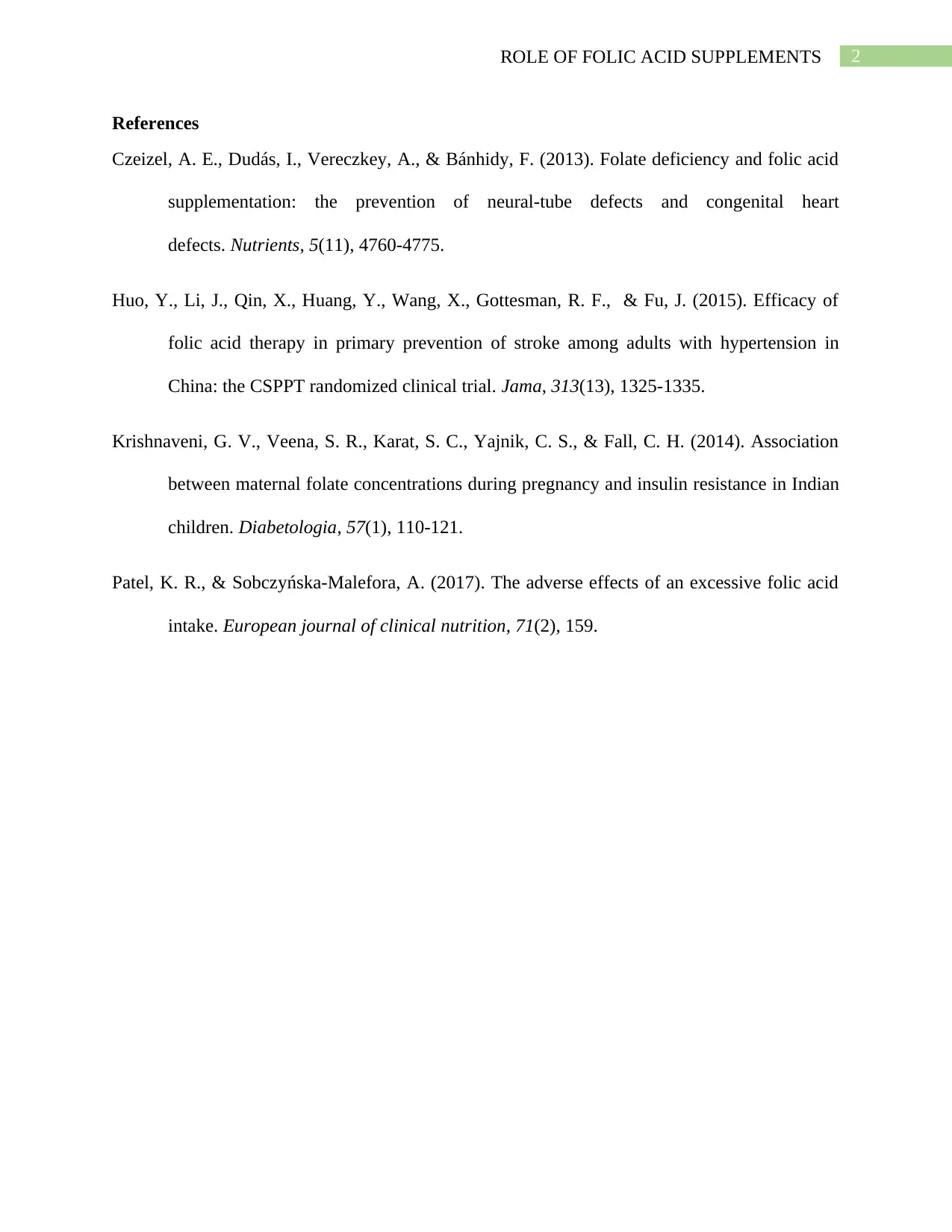Report on Folic Acid Supplements: Uses and Adverse Effects
VerifiedAdded on 2023/05/30
|3
|535
|310
Report
AI Summary
This report examines the role of folic acid supplements, detailing their benefits and potential risks. It highlights the use of folic acid in preventing neural tube defects and congenital heart defects, often prescribed during pregnancy. The report further explores the adverse effects of excessive folic acid intake, including the presence of unmetabolized folic acid in the blood, increased cancer risk due to reduced natural killer cell response, and potential links to child obesity and insulin resistance. The report references key studies and provides a comprehensive overview of the health implications associated with folic acid supplementation, offering insights into both its therapeutic applications and potential adverse outcomes.
1 out of 3





![[object Object]](/_next/static/media/star-bottom.7253800d.svg)